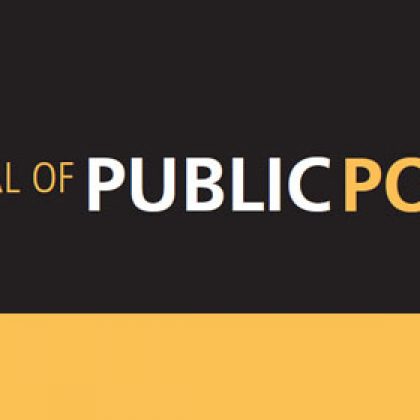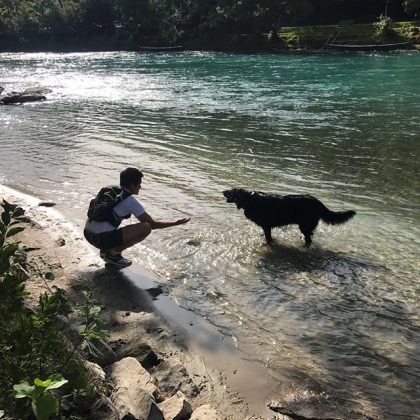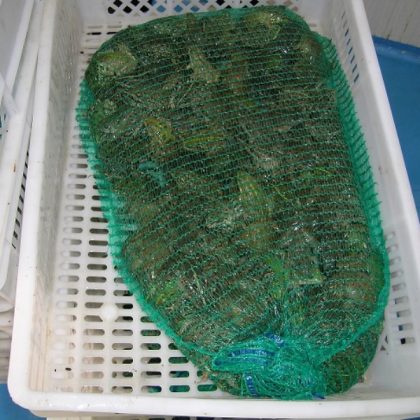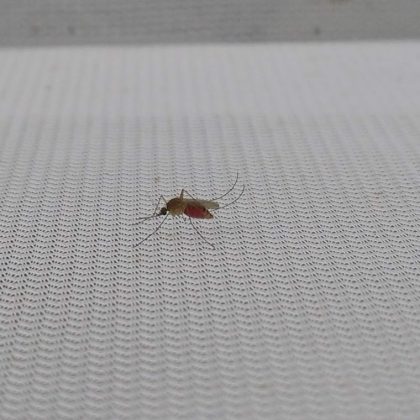A new era for the American Political Science Review
We are honored to officially start our editorship of the American Political Science Review. We do so with great excitement, but also with some solemnity.…

We are honored to officially start our editorship of the American Political Science Review. We do so with great excitement, but also with some solemnity.…

Associate Professor Peter B. Shull of Shanghai Jiao Tong University,answers our questions about his work and Cambridge University Press’s new journal Wearable Technologies

The ability of high-energy laser systems to provide complex laser pulse shapes has growing importance in many research disciplines such as laser fusion, high-energy-density physics, laboratory astrophysics, and laser conditioning of optical materials.…

What is your current job title both within Experimental Results and outside of the journal? Where are you based in the world?…

Whistleblowers have become essential watchdogs during the COVID-19 pandemic. In my recent article in the European Journal of Risk Regulation I discuss the main whistleblowing cases in China, the USA and Europe showing how workers, especially medical workers, are not only on the front line of dealing with this global crisis, but also confronting censorship of information by governments and authorities.…

I am pleased to announce that the 2019 Gordon E. Pike JMR Paper of the Year, recognizing excellence in advancing materials knowledge through written scholarship, was recently awarded by the Materials Research Society (MRS).…

Let’s face it – stepping (sitting) in front of a camera has become a staple component of working from home during the global pandemic.…

The recent gas leak from the LG polymer gas plant has wreaked havoc in the town of Visakhapatnam in India. A toxic gas – styrene – leaked at around 3 am on May 7 from LG Polymer, a South-Korean-owned local plastic-manufacturing plant.…

The world is currently facing the most serious health crisis in more than a century. While virtually all countries have been affected by the COVID-19 pandemic, there is some variation in the spread of the virus and the extent to which it has disrupted societies and economies.…

Congratulations to Alexander J. Smits on being awarded the 2020 Batchelor Prize ‘for seminal contributions to our understanding of the structure of wall turbulence at very large Reynolds and Mach numbers, especially through the design of innovative experiments and measurement devices, and also for pioneering work on bio-inspired propulsion and on drag reduction using modified surfaces’.…

A quarter of a century has passed since the 1994 Rwandan genocide and the 1995 genocide in Bosnia and Herzegovina. The anniversaries of these tragedies beckon us to reflect on the responsibility of theologians, scholars of religion, and religious educators to confront genocide.…

HEPL blog series: Country Responses to the Covid19 Pandemic Quebec’s response to the coronavirus pandemic Greg Marchildon [1] [2] Amélie Quesnel-Vallée [2] [3] Madeline King [2] Antonina Maltsev [2] [1] Institute of Health Policy, Management and Evaluation, University of Toronto [2] North American Observatory on Health Systems and Policies [3] McGill Observatory on Health and Social Services Reforms, Department of Sociology and Department of Epidemiology, Biostatistics and Occupational Health, McGill University Background and Scope Quebec has been the hardest hit jurisdiction in Canada yet among the first provinces to begin reopening.…

The British Journal of Psychiatry (BJPsych) has collaborated with the World Psychiatric Association to examine the mental health aspects of disasters and trauma, aiming to strengthen the contribution of psychiatrists to reduce distress, illness and suicidal behaviour among vulnerable populations.

From time to time, until the crisis has passed, the HEPL blog series authors will be given the opportunity to provide short updates on their country/region’s continuing response to this worldwide catastrophe and their further reflections on those responses.…

HEPL blog series: Country Responses to the Covid19 Pandemic Albania’s response to the coronavirus pandemic Andi Hoxhaj, University of Warwick The coronavirus pandemic officially started in Albania on 8th of March when the Ministry of Health announced the country’s first cases – a father and son who had travelled from Italy to Albania.…

HEPL blog series: Country Responses to the Covid19 Pandemic Poland’s response to the Coronavirus Pandemic Michał Zabdyr-Jamróz, Iwona Kowalska-Bobko As of 8th May Poland has reported a total of 15,200 confirmed COVID-19 cases; 5,184 recoveries; 9,260 active cases (2% being serious or critical) and 756 deaths associated with the disease (20 deaths per 1 million inhabitants).…

Welcome to our “Meet the Editors” series, where we interview the editorial team about their work and their relationship to the journal.…

Drawing upon his Open Access article in vol.5, no.1 of the European Journal of International Security, Patrick A. Mello explores the withdrawal of democracies from the Iraq war as a form of coalition defection.…

Asking whether this era is a Second Gilded Age similar to the First Gilded Age, which began at the end of the Civil War and extended into the early twentieth century, creates a blind man and the elephant problem. Examining different parts of the era can yield disparate conclusions.

In the past few months Universities around the world have had to adapt considerably. With home working becoming the norm teaching and learning has shifted to Zoom, Google Hangouts and other online video conferencing software.…

Water frogs could become regionally extinct in part of their native Turkey in a little over a decade because too many are being taken for food. …

With more people eating at home due to COVID-19, New Curtin research published in Public Health Nutrition has found more than half of Australian supermarket own brand chilled ready-made meals are unhealthy and 94 percent are ‘ultra-processed’ – yet more than 80 percent are labelled with a ‘pass mark’ under the Health Star Rating system.…

2010 was a big year; 4G was rolled out for commercial use; we saw the launch of technological game changers in the first iPad and the iPhone 4 as well as the first mass-produced mainstream electric car, the Nissan Leaf.…

This is the second blog in a series in which we ask libraries around the world about their sustainability policies and experiences.…

What is Nidotherapy? Peter Tyrer Author of 'Nidotherapy: Harmonising the Environment with the Patient' tells us more.

The RCPsych Article of the Month for May is from BJPsych International and is entitled ‘Mental Health in Malawi’ by Philippa Lilford.

Conflict-driven societies are the most difficult places for exercising even basic human rights and are more prone to gross violations of human rights.…

Rice is the most important cereal crop in Bhutan and annual production is often equated to the country’s food security. Rice is cultivated throughout Bhutan and its agro-ecology ranges from 100 m above sea level (masl) in the southern lowlands to elevations as high as 2700 masl in the north.…

The animal article of the month for June is “Using animal‐mounted sensor technology and machine learning to predict time-to-calving in beef and dairy cows” by G.…

Cover crops are a proven tool for suppressing many troublesome weeds. But what about the residues they leave behind? Research featured in the journal Weed Science shows the composition of those residues matters – influencing both the control of summer annual weeds and the yields produced by crops.…

From time to time, until the crisis has passed, the HEPL blog series authors will be given the opportunity to provide short updates on their country/region’s continuing response to this worldwide catastrophe and their further reflections on those responses.…

In this post we talk to Dr Alan M. Fryday and Dr Toby Spribille, Editors for The Lichenologist, about their Glacier Bay Special Issue which is available Open access.…

An Oryx study has shown how ecotourism in the Philippines has transformed people’s attitudes towards marine conservation. Researchers from the University of Victoria in Canada and Large Marine Vertebrates Research Institute Philippines (LAMAVE), visited three sites where tourists pay to swim with whale sharks in the wild.…

“Always Connect” seems more fundamental than “Always Historicize,” at least for the long eighteenth century (pace Jameson and Foucault). People characterized themselves and others through their multiple relations and positions relative to each other, as master-servant, master-slave, patron-client, parent-child, sister, brother, friend, daughter, feme sole or wife.…

The latest Paper of the Month for Parasitology is Plasmodium transmission differs between mosquito species and parasite lineages Mosquitoes are one of the main vectors of pathogens such as Plasmodium, the causative agent of malaria, that affect humans and other animals.…

Grey mould, caused by the fungus Botrytis cinerea, is one of the major diseases that affects vineyards across the globe and is the cause of an important reduction in yield.…

The utilization of microbial additives for the purpose of achieving proper fermentation and improving digestibility has generated great interest, which is evidenced by the fact that inoculants have been developed as silage additives for over 40 years.…

There is a multitude of assumptions among food system practitioners about where people shop for food and what they choose to buy.…

HEPL blog series: Country Responses to the Covid19 Pandemic Ontario’s response to the coronavirus pandemic Greg Marchildon[1][2] Sara Allin[1][2] Karen Born[1] [1] Institute of Health Policy, Management and Evaluation, University of Toronto [2] North American Observatory on Health Systems and Policies Background and Scope With 39% of Canada’s population (14.7 million residents), Ontario is home to the country’s largest city, Toronto, and its national capital of Ottawa.…

HEPL blog series: Country Responses to the Covid19 Pandemic Malaysia’s Response to the Coronavirus Pandemic YingYing Yew University of Oviedo, Faculty of Medicine and Health Sciences, Unit for Research in Emergency & Disaster, Campus del Cristo, E-33006, Oviedo, Spain On the 23rd January 2020, the Singapore Immigration Checkpoints Authority alerted its counterpart neighbour regarding foreign visitors that tested positive for COVID-19 and managed to get across to the Malaysian border.…

HEPL blog series: Country Responses to the Covid19 Pandemic Jordan’s Response to the Coronavirus Pandemic Elise Tancoigne University of Geneva Jordan reported 453 cases and 8 deaths from COVID-19 as of April 30, among the lowest number in the world.…

This is the first in a series of posts in which we ask libraries around the world about their sustainability policies and experiences.…

“In this blog (my first!), I share the backstory to the Advances in Archaeological Practice article I prepared with my co-author, Meng Ying, in which we examine safeguard policies used by private-sector banks to protect and manage cultural heritage.”…

In this time of coronavirus crisis, we are seeing many of the less well-off workforce in the UK and the West under stress.…

In the past ten years, there have been major developments in technology that have transformed the way libraries operate. With the rise of e-publishing, libraries have had to adapt to remain functional and useful to students, researchers and staff.…

The Nutrition Society Paper of the Month for May is from Nutritional Research Reviews and is entitled ‘Early-life programming of adipose tissue’ by Ericka Moreno-Mendez, Saray Quintero-Fabian, Cristina Fernandez-Mejia and Maria-Luisa Lazo-de-la-Vega-Monroy.…

Why are vulture populations collapsing, what can we do to stop this, and why is it crucially important that we do?…